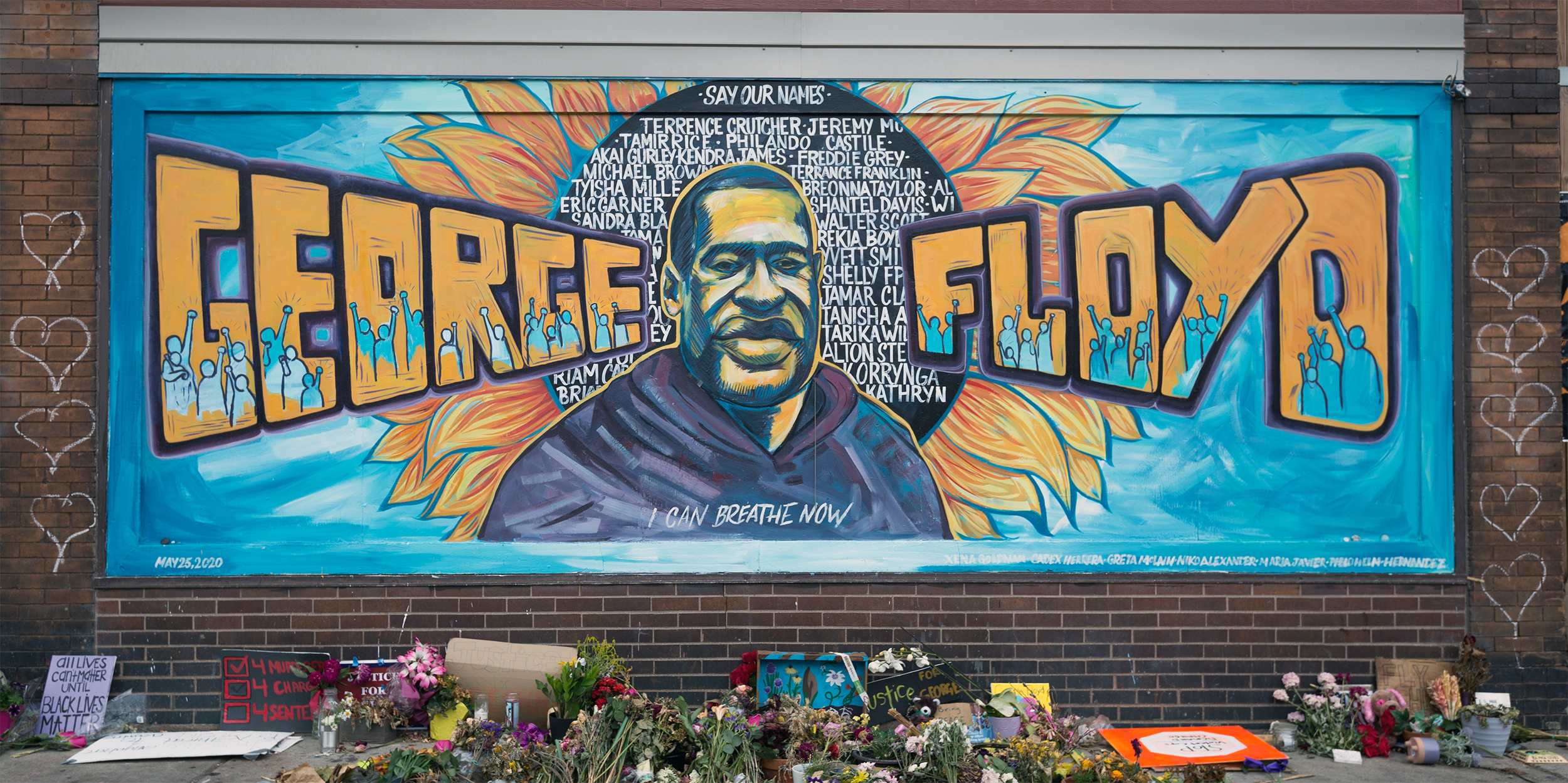Yet today, Russians may not believe video or reports from Ukrainian family members.

The journey from a “mobile” television camera that weighed several hundred pounds to the video-camera-plus-studio found in most of our pockets took about seven decades. Mobility and affordability transformed that costly and specialized tool of the late 1940s into a handheld device we use to document our daily lives. Including encounters with violence.
Kyocera announced the first camera phone in May 1999. In March 2007, Nokia released the N95, which was the first mobile phone with an integrated video camera. It would be two more years before Apple announced the iPhone 3GS, which contained a video camera.
Apple now has more than half of the US mobile phone market, and 85% of Americans own a smartphone (which incorporates a video camera).
With that background, it’s not strange that bystanders pulled out their phones and recorded Minneapolis Police Officer Derek Chauvin as he pressed his knee into George Floyd’s neck on Monday, 25 May 2020.
What was historic was that a pocket-sized technology began a recalibration of the power relationship between uniformed officers and civilians.
Darnella Frazier was only 17 when she recorded George Floyd’s death under Chauvin’s knee. Her video would become “a key piece of evidence.”
On 29 March 2021, Chauvin, then 45, began day one of his trial on second-degree murder, third-degree murder and manslaughter charges.
A jury found Chauvin guilty of unintentional second-degree murder, third-degree murder and second-degree manslaughter less than a month later, on 20 April 2021.
On the first anniversary of Floyd’s death, 25 May 2021, Frazier wrote about her experience on Facebook.
A year ago, today I witnessed a murder…
A part of my childhood was taken from me. My 9-year-old cousin who witnessed the same thing I did got a part of her childhood taken from her. Having to up and leave because my home was no longer safe, waking up to reporters at my door, closing my eyes at night only to see a man who is brown like me, lifeless on the ground. I couldn’t sleep properly for weeks. I used to shake so bad at night my mom had to rock me to sleep…
Even though this was a traumatic life-changing experience for me, I’m proud of myself. If it weren’t for my video, the world wouldn’t have known the truth. I own that. My video didn’t save George Floyd, but it put his murderer away and off the streets…
George Floyd, I can’t express enough how I wish things could have went different, but I want you to know you will always be in my heart… May your soul rest in peace.
When I taught journalism at the University of Washington in early days of Web 2.0, we talked a lot about citizen journalism. The power of anyone and everyone being able to bear witness to news and then share that experience via the magic of a palm-sized computer that connects us with the world.
Academics often focus on citizen journalism in countries where press freedom is an oxymoron, such as China and much of the Arab world.
In my wildest moments of technological optimism, never did I dream that mobile phones would bring murders to justice in the United States. Today I understand my blind spot came from a place of privilege; Americans are actively employing technology to achieve justice. (Perhaps not intentionally, however, as the recent case of Ahmaud Arbery in my home state of Georgia illustrates.)
Yet the opposite is also happening. Many people in Russia do not believe what relatives and friends show or tell them about the violence in Ukraine.
[E]ven after sending videos from her heavily bombarded hometown [Kharkiv, Ukraine], Oleksandra is unable to convince her mother [in Russia] about the danger she is in…
“[My parents] still say it probably happens only by accident, that the Russian army would never target civilians. That it’s Ukrainians who’re killing their own people.”
[…]
Mykhailo, a well-known Kyiv restaurateur, [and family] travelled to Hungary…
He called his father and described what was happening. His father replied that this wasn’t true; there was no war and – in fact – Russians were saving Ukraine from Nazis…
“My own father does not believe me, knowing that I’m here and see everything with my own eyes.”
Technology alone is not enough. It is a necessary but insufficient condition to recalibrate power. Without people with open minds, strong will and courage, that technological marvel will remain just a phone.
Cross-posted from WiredPen
Photo: Flickr CC, Lorie Shaull
Daily posts, 2022-2023
Known for gnawing at complex questions like a terrier with a bone. Digital evangelist, writer, teacher. Transplanted Southerner; teach newbies to ride motorcycles. @kegill (Twitter and Mastodon.social); wiredpen.com
















